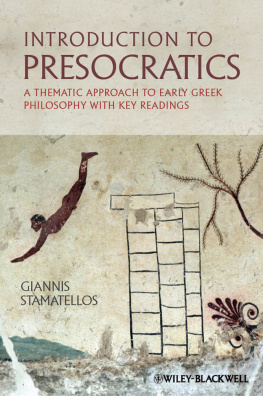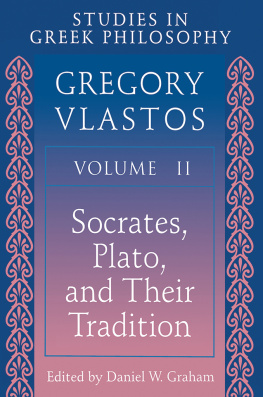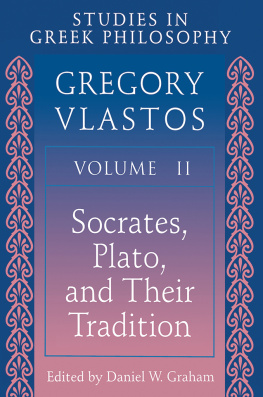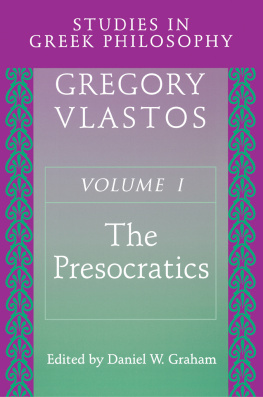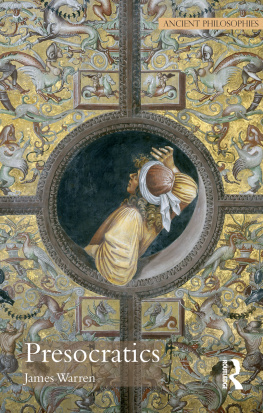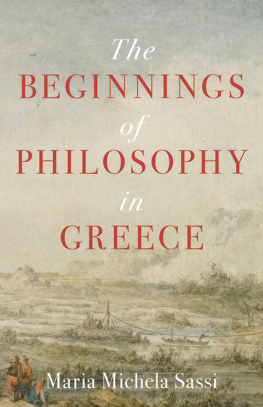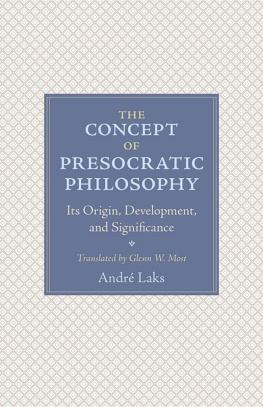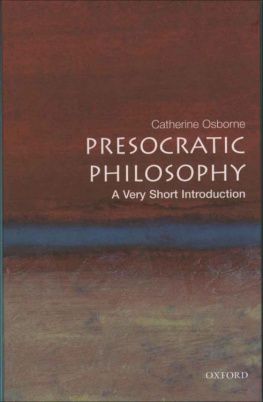This edition first published 2012
2012 John Wiley & Sons, Inc.
Wiley-Blackwell is an imprint of John Wiley & Sons, formed by the merger of Wileys global Scientific, Technical and Medical business with Blackwell Publishing.
Registered Office
John Wiley & Sons Ltd, The Atrium, Southern Gate, Chichester, West Sussex, PO19 8SQ, UK
Editorial Offices
350 Main Street, Malden, MA 02148-5020, USA
9600 Garsington Road, Oxford, OX4 2DQ, UK
The Atrium, Southern Gate, Chichester, West Sussex, PO19 8SQ, UK
For details of our global editorial offices, for customer services, and for information about how to apply for permission to reuse the copyright material in this book please see our website at www.wiley.com/wiley-blackwell.
The right of Giannis Stamatellos to be identified as the author of this work has been asserted in accordance with the UK Copyright, Designs and Patents Act 1988.
All rights reserved. No part of this publication may be reproduced, stored in a retrieval system, or transmitted, in any form or by any means, electronic, mechanical, photocopying, recording or otherwise, except as permitted by the UK Copyright, Designs and Patents Act 1988, without the prior permission of the publisher.
Wiley also publishes its books in a variety of electronic formats. Some content that appears in print may not be available in electronic books.
Designations used by companies to distinguish their products are often claimed as trademarks. All brand names and product names used in this book are trade names, service marks, trademarks or registered trademarks of their respective owners. The publisher is not associated with any product or vendor mentioned in this book. This publication is designed to provide accurate and authoritative information in regard to the subject matter covered. It is sold on the understanding that the publisher is not engaged in rendering professional services. If professional advice or other expert assistance is required, the services of a competent professional should be sought.
Library of Congress Cataloging-in-Publication Data
Stamatellos, Giannis, 1970
Introduction to Presocratics : a thematic approach to early Greek philosophy with key readings / Giannis Stamatellos.
p. cm.
Includes bibliographical references (p. ) and indexes.
ISBN 978-0-470-65502-3 (hardback : alk. paper) ISBN 978-0-470-65503-0 (pbk.: alk. paper) 1. Pre-Socratic philosophers. I. Title.
B187.5.S73 2012
182dc23
2011045995
A catalogue record for this book is available from the British Library.
ISBN 978-1-118-21758-0 (epdf)
ISBN 978-1-118-21759-7 (epub)
ISBN 978-1-118-21760-3 (mobi)
To Rosemary
Preface
The origins of Western philosophy and science can be traced back to the early Greek philosophers of the sixth and fifth century BCE, known as Presocratics that is, those who preceded Socrates. The main figures are Thales, Anaximander and Anaximenes, all three from Miletus, on the Ionian coast of Asia Minor; the widely traveled Xenophanes of Colophon; Heraclitus of Ephesus; Pythagoras from the island of Samos; Parmenides and Zeno, known as Eleatics on account of their origin from Elea in south Italy; Melissus from Samos, also placed among the Eleatics for his support and adaptation of Parmenides arguments; and then, finally, the pluralists (also called Neo-Ionians) physicalists who posited more than one basic principle in their ontology: the Sicilian Empedocles; Anaxagoras of Clazomenae; and the atomists Leucippus and Democritus, both of them connected with Abdera in northern Greece.
This book aims to offer a concise philosophical introduction to the Presocratic thinkers and in doing so it follows a thematic exposition of the topics discussed by these Greek pioneers. It intends to show how Presocratic thinking formed, creating the early Greek philosophical tradition, and how one Presocratic responded to another. In this way it hopes to demonstrate their innovative philosophical explorations.
The book comprises of a series of short essays on six philosophical themes significant to Presocratic inquiry. The six themes are: principles , the cosmos , being , soul , knowledge and ethics . These themes emerge as important philosophical topics not only in the history of ancient Greek philosophy, but also in modern philosophical inquiries and they have been selected for this reason. They also indicate the wide range of philosophical interests found in the Presocratic tradition, which embraced the origins of cosmos and being, the nature of the soul, the foundation of human knowledge and the values of human life. However, as this is a short, introductory book, the analysis of each theme is not intended to be exhaustive. Nor are the selected themes the only ones discussed in the Presocratic tradition. Controversies that surround many of the issues related to Presocratic scholarship in each of these areas can only be hinted at, while signposts to further study can be found in the bibliography. Furthermore, this short study is of an introductory nature and the treatment of the six Presocratic themes is mainly doxographical. Hence this book does not address scholars and advanced students of ancient Greek philosophy; rather it targets non-experienced readers and people who are interested in Presocratic philosophy, hoping to motivate them into further reading and exploration of the early Greek philosophical tradition.
Within this framework, we begin with the role and importance of the Presocratic pioneers in ancient Greek philosophy and historiography (chapter 1); this is followed by a brief account of the life and work of individual thinkers (chapter 2). The first theme concerns the basic principles that the Presocratics postulated. Its presentation will take us into the material explanations of the Ionians, the Pythagorean apprehension of the formal principle, and the pluralistic approaches of Empedocles, Anaxagoras, Leucippus and Democritus (chapter 3). There follows a study of Presocratic cosmologies, contrasting the Ionian development of the Homeric image of the cosmos with the mathematical structure of the universe put forward by the Pythagoreans and with the pluralistic views of the universe that are found in later Presocratics (chapter 4). This leads into the subject of the nature of being itself, where particular emphasis will be placed on the main arguments of Parmenides controversial denial of non-being in favor of a unified, timeless and indestructible being; on Zenos famous paradoxes of motion and refutations of the plurality of being; and on Melissus notion of the infinity of being (chapter 5). The concept of the soul as source of life and intelligence is our next theme, and it includes a brief discussion of transmigration, time and immortality (chapter 6). Then we shall explore pioneering work on epistemology, work based on the early discrimination between truth, knowledge and belief, which is fundamental in this field; and here we have included a brief account of the Presocratics criticism of traditional polytheism, human knowledge and sense-perception (chapter 7). Chapter 8 is an introduction to Presocratic moral philosophy; it moves from the heroic ethics found in Homer to an early form of virtue ethics propounded by Heraclitus and Empedocles, and from there to Democritus ethics. A general conclusion is offered as the ending chapter of the book (chapter 9).
A translation of the main fragments by Rosemary Wright is offered in Appendix A for general reference. Two other appendices have been added: one on the Presocratic sources (Appendix B) and another on the legacy and reception of Presocratic philosophy in later thought and traditions (Appendix C). Finally, the book is supplemented with a glossary of Greek terms, a glossary of philosophical terms, and, of course, a general bibliography and an index.

